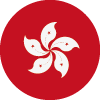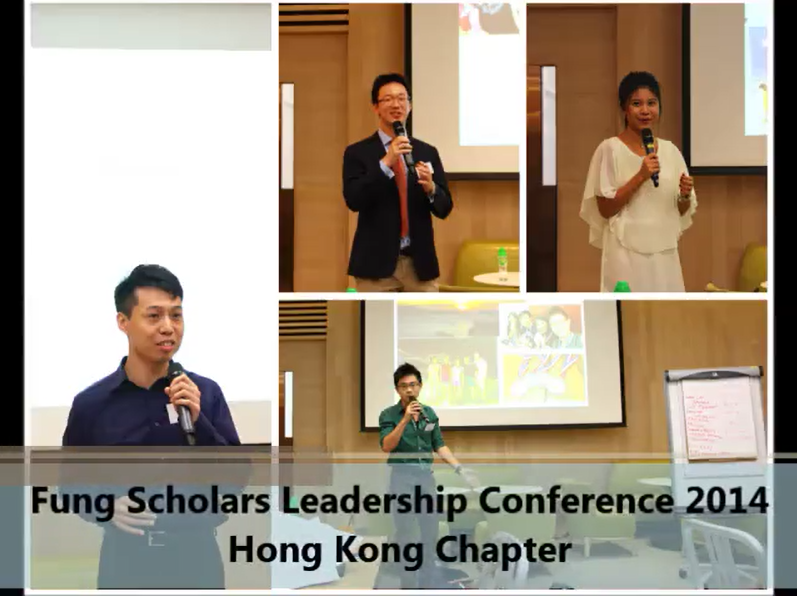Local Chapters
The Fung Scholars (Hong Kong Chapter), a member-led local chapter under the Victor and William Fung Foundation, was established in 2011 to connect the future leaders within the Fung Scholars global and local networks. The Hong Kong chapter committee members are passionate about inspiring other scholars and fellows to engage with their local communities to help make a difference.

Fung Scholars Stories
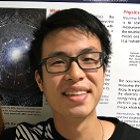 Andy HO
Andy HO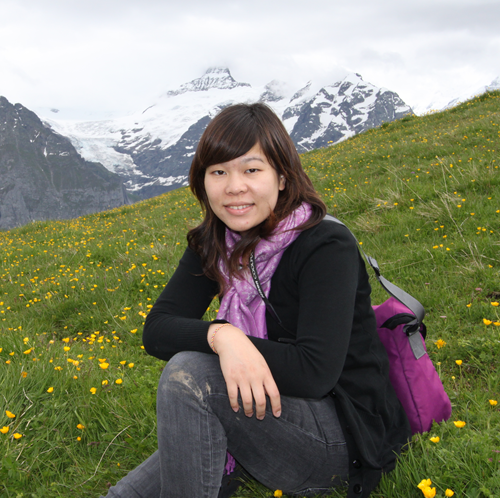 CHENG Ching In
CHENG Ching In CHENG Long Yin Ryan
CHENG Long Yin Ryan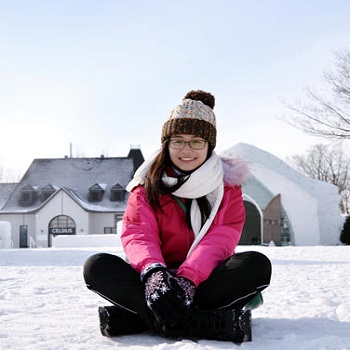 CHIK Chun Ming Candy
CHIK Chun Ming Candy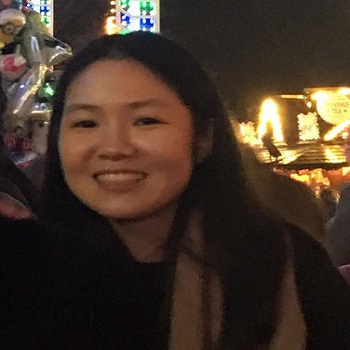 Ellaine CHENG
Ellaine CHENG Faith LAM Yan Ling
Faith LAM Yan Ling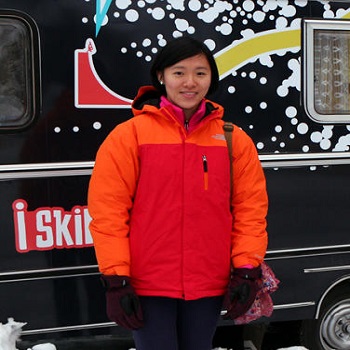 LI Si Yeung
LI Si Yeung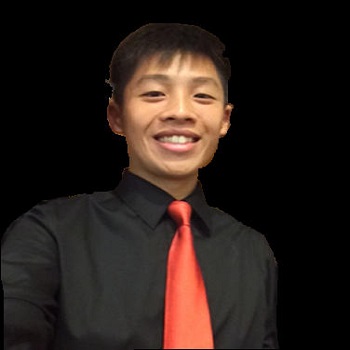 Philemon CHAN
Philemon CHAN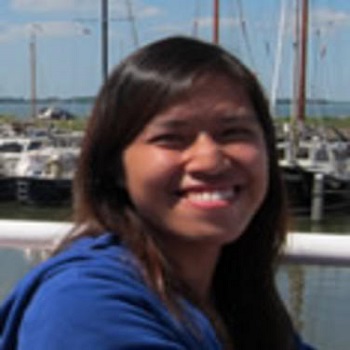 Queenie LEE Kwan Ling
Queenie LEE Kwan Ling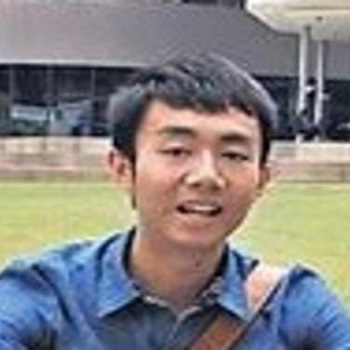 Sam KOK Man Chun
Sam KOK Man Chun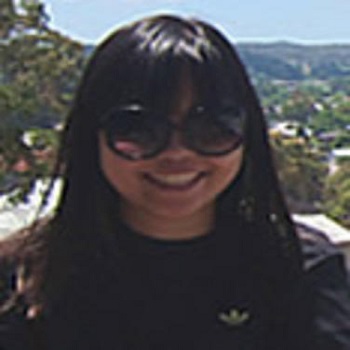 Sarah CHEUNG Wing Yin
Sarah CHEUNG Wing Yin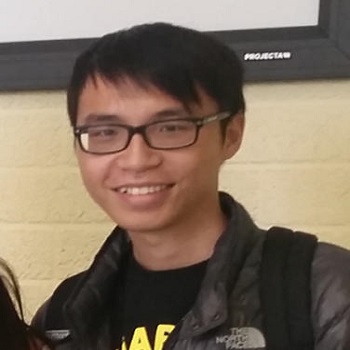 TSE Tak Hei Leo
TSE Tak Hei Leo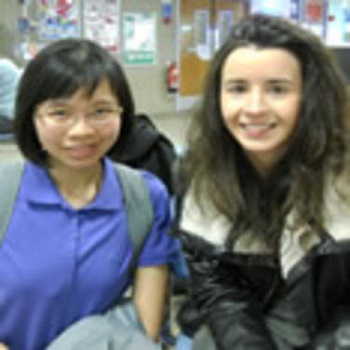 Wendy LEE Mun Wai
Wendy LEE Mun WaiAndy HOFS2017-18, The University of Oxford | to UK
As a student aspired to become a physicist in the future, this exchange has provided a precious opportunity for me to participate in one of the largest underground neutrino experiment in the world, the SNO+ experiment at the University of Oxford. I was responsible for data analysis and reconstruction during the three months of exchange. Working with my supervisor and DPhil students around me has broadened my horizon on the frontier developments in the field of underground neutrinos experiments and the physics behind them. The experience of working in a world-scaled experiment has also taught me the importance of effective communication with others and at the same time to be independent in learning. Lastly, I would like to express my gratitude to the donors of the Fung scholarship. This exchange could not be as fruitful as it was without the generous support of the Victor and William Fung Foundation.
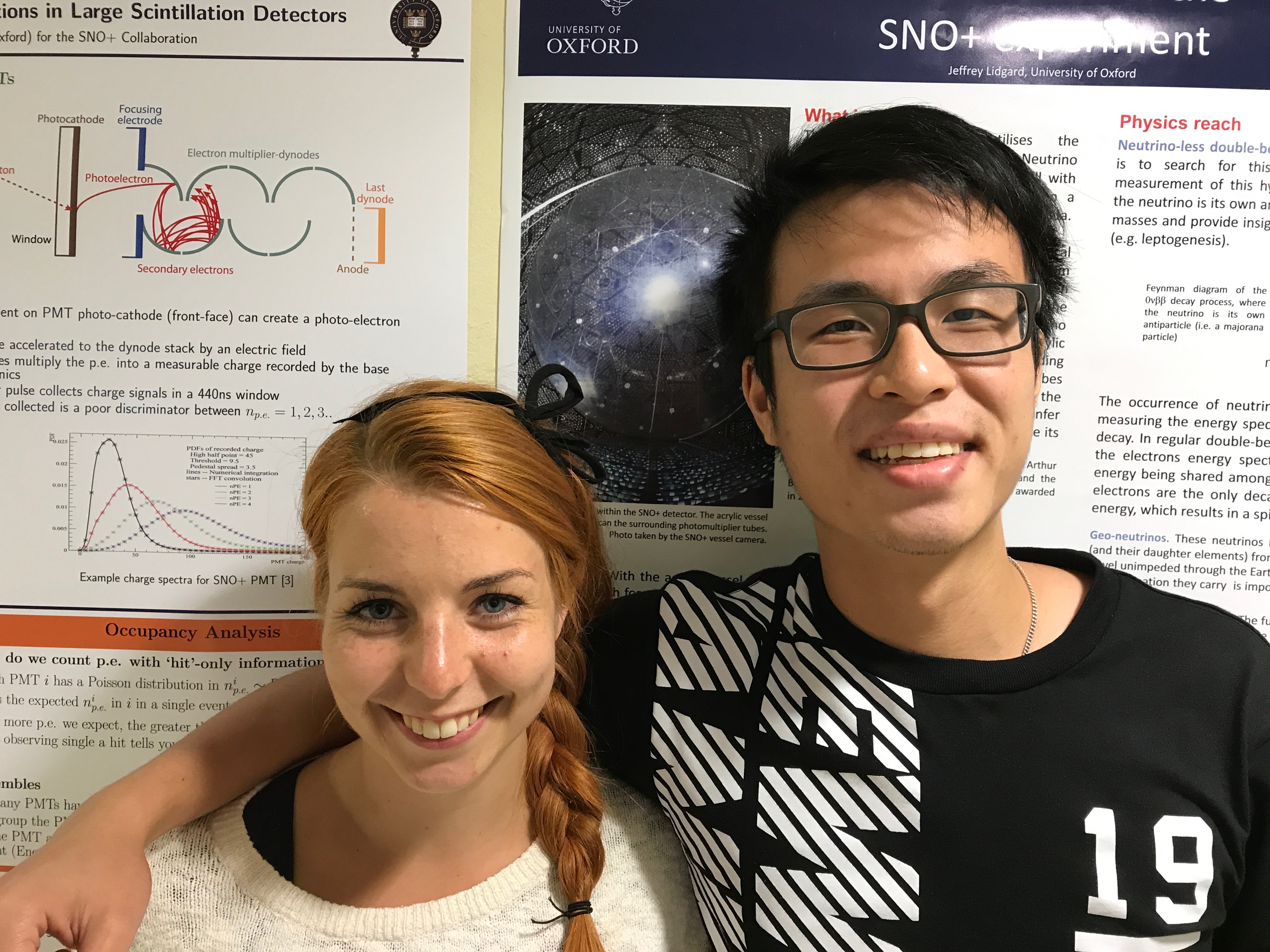
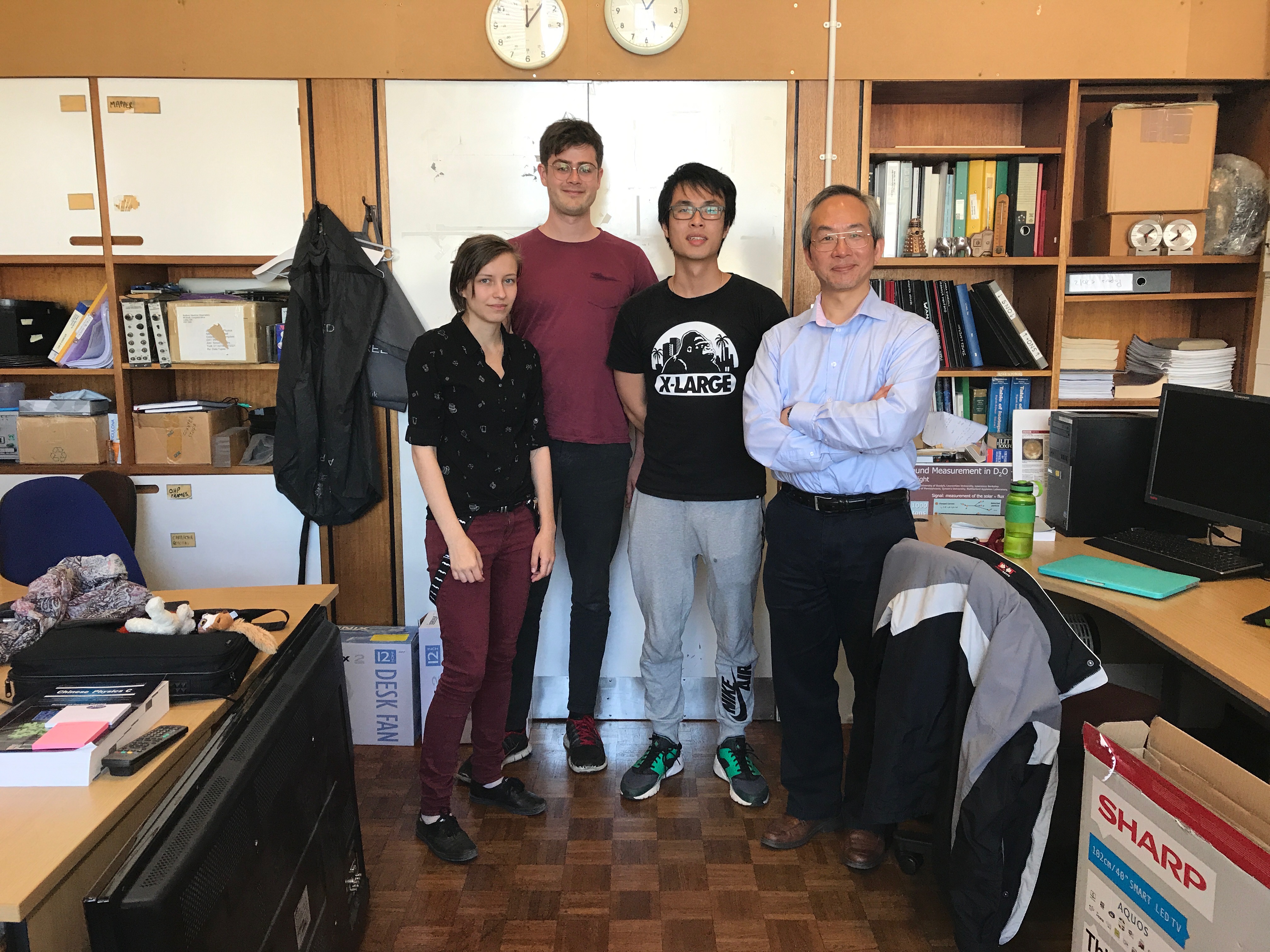
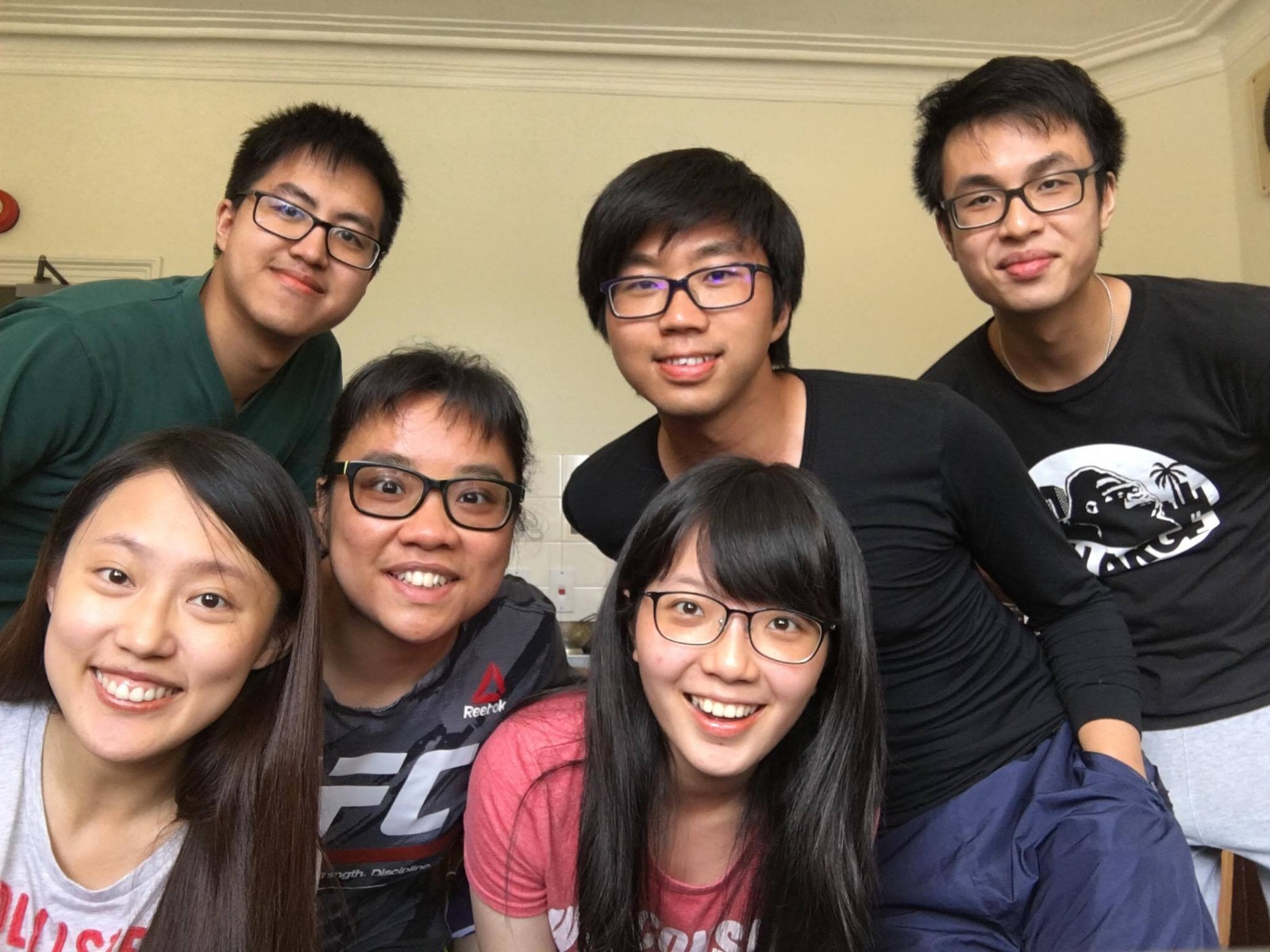
CHENG Ching InFS2010-11, The Hong Kong Polytechnic University | to Germany
Köln International School of Design (KISD) is a prestigious design school and top ranking school in the world. KISD is located in Germany where is the important international center for all kinds of arts and design. Cologne is an enthusiastic and creative city with long history of industrial design. There are many well-known and successfully brands such as Posh and BMW. I choose the KISD for my exchange because I believed it would be convenient to enjoy the culture of Germany, inspire me with new things and ideas through visiting museums, galleries, exhibitions or even joining art festivals. Also, in Germany I could meet people from all over the world and experience diverse cultures.
KISD is like a big family and I like the warm and welcoming atmosphere there. We consider all the professors and students like own family members. We share our feelings and opinions with each other, in the afternoon tea or during our mentor meetings. The lectures and presentations are in a informal formats, open to the public, just feel free to talk and express your sights and shout it up. The presentations are somehow quite creative and innovative, with the interactions with each others.
The biggest challenge for me is finding a flat because it’s so hard to find a place within a short period of time. Normally, Cologne university students are needed to find the accommodations by themselves, not like Hong Kong, providing the student hall with specific university. Therefore, there is a great and tight demand for all the university students in finding their accommodations. In my case, as my landlord could not speak English, I needed to do lots of gestures and asked my German friends for translations, but it was really an unforgettable experience.
The most exciting part is learning and sharing the cultural differences with my classmates and overseas friends. It is really an interesting thing that all of us have different cultural background in which Asian and Western cultures are totally different. In my host university, students are willing and happy to organize activities and trips which sometimes cooperate with International Office. I remember there was a ‘”Hong Kong Night” which Hong Kong exchange students prepared HK style dinner and movies to all the classmates. It was a wonderful night to prepare the food, enjoy HK food and chat. And most of our classmates were satisfied and they like HK food so much which I was unexpected.
Although the exchange period was not so long, I found it’s worth to be an exchange student. I was learning to be more mature by taking care of myself, solving problems and making decisions by my own. It expanded my minds and sights, by observing the peoples’ behaviors and sharing the culture with my foreign friends. I was learning to be more active and brave, willing to try new challenges and talk to different people. I also found my language skills were improved by talking with different people from all over the world.
CHENG Long Yin RyanFS2013-14, Hong Kong University of Science and Technology | to USA
I am a student currently studying Business Administration in the Hong Kong University of Science and Technology (HKUST), and went on exchange in the past spring semester to the University of Pennsylvania in the United States. It is my honor to be selected as one of the recipients of the titled scholarship, and I am writing this exchange report as an expression of my gratitude to your generosity.
Details of my exchange study:

Name of institutions: The Wharton School of the University of Pennsylvania
Countries: The US
Course taken: Negotiation, Power and Politics in Organization, Advanced Corporate Finance, Marketing Strategy
Duration of study: 1 semester
Differences in teaching and learning
The dynamics of teaching and learning between Hong Kong institutions and their American counterparts is very different. While the former generally put emphasis on the transfer of knowledge, the latter ones stress on developing the students’ individual thinking.
For instance, one of my management classes requires students to do an extensive amount of readings before coming to class. Since the readings became the major medium of knowledge transfer instead of the lecture itself, the professor has more flexibility in deciding what to do with the class time, from discussion to role play, to help us consolidate the concepts we read. As a natural consequence, the learning environment is more proactive. Students are encouraged to freely express their opinion in this dynamic environment.
Lecturing is perhaps never the most effective way for teaching and learning; self-readings and videos from Youtube will probably do the job better. However it is the insights and analyses by the professors that a students want to learn from and my experience at Penn is truly a great one.


Highlights of my exchange semester
Veteran homelessness has been a serious issue in the States for quite some time and I am happy to have an opportunity to work on a related project during my time at Penn. After serving the US military at the prime of their lives, some veterans can find new jobs and start a new leaf in life, while some are so wired to the way of living in the army. For instance they are always anxious about the potential threats around them, and got used to the direct way of talking and one-way communication. They may also lack the necessary skills in the civilian society such as computer literacy to find a new job. For one of the courses that I took, we were asked to support the veteran house regarding its management issue and the experience allowed me to learn more about this topic.
My spring break trip to Cancun is definitely one of the highlights of my exchange journey. It has been a very different traveling experience for me because I spent the holiday with a group of students from Italy. While Hong Kong people usually pack their travel schedule with sightseeing spots and top-rated TripAdvisor activities, my Italian friends simply take the chance to relax on the beachside with nothing on their list. With the sun and water and coupled with some snorkeling and chats, it was a refreshing holiday after mid-term period and it completely changed my definition of vacation!
Yet another special experience is the countless conversations I had with my flat-mate. While he was born and raised in New York, both his parents came from the Dominican Republic. He spent his childhood in a different way because of his appearances. With this background he developed a strong interest in areas related to social inequality, social welfare systems and the history of the country. He is very interested in how society works in places in Asia, Hong Kong included, and we discussed everything from cuisines to politics, international relations to how technologies is shaping our lives. From him not only did I understand more about US beyond the surface, I also got a chance to view my hometown – Hong Kong in a different perspective.

Key takeaways
During the semester I traveled quite a bit around the country with friends. While we will compare the different cities in the States, we inevitably will also compare them with Hong Kong. In Hong Kong we used to hear a lot of complaints about things from small ones like price level of transportation to big issues like social welfare system. People are told to be critical. However the conclusion my friends and I share after getting to experience more about various cities in the US is that Hong Kong is truly one of the best cities in the world. Many aspects in our cities are indeed what we can take pride on but we might have overlooked and taken it for granted. The exchange experience allows me to appreciate more about these aspects in my home town and I hope that the people in Hong Kong can also be more appreciative of the things we possess.
Conclusion
Business is more than a subject for one to study. It is more about one exposing to society, and understanding how various economic and social factors intertwist to affect businesses. Going on an exchange journey goes a long way in achieving this purpose. It allows students to broaden their horizons, gain exposure to a different culture and lifestyle, and from the contrast embrace the differences and develop their own viewpoints. This year, I am honored to be given this opportunity to explore another side of the world.
Inevitably, this exchange semester involves extra expenses, such as transportation and accommodation. Moreover, travelling, although it may sound extravagant on the surface, has really been an important process for me in understanding and compare various cultures. Given the expenses involved, I am truly grateful to be supported by this scholarship so that I can afford more opportunities to explore, and thus make the most out of this exchange opportunity.
By awarding me this exchange scholarship, you have lightened my financial burden which allows me to afford more on the important aspect of exchange, explore. It supported me substantially in my pursuit of academic excellence and personal development. Once again, thank you very much for your generosity.
CHIK Chun Ming CandyThe University of Hong Kong | to Canada
My exchange journey at McGill University would not be made possible without the support from Fung Scholarships. The scholarship has allowed me to try out different new things during the exchange to broaden my horizon. I am also obliged to become part of the Fung Scholars community so that I can connect with other students who had their exchange in different parts of the world.
To summarize my exchange journey, “challenging” is definitely the best word. “Challenging” perfectly describes the bittersweet I have encountered – it was frustrating at first when I tried to adapt to a completely different culture and mode of living, yet, all the challenges have made me into a more mature and independent individual who can now confidently cope with the upcoming academic and career-related pressure.
Language barrier is one major challenge I faced. McGill University situates in the beautiful city of Montréal where French is the official language. All road signs, public announcements on transportation and price tags are in French. I still vividly remember that upon my arrival at Montreal, I failed to contact my residence at a payphone because all the written and verbal instructions were in French! This language barrier, however, gave me an opportunity to communicate with locals for explanation and learn some basic French. It was absolutely interesting to expose myself to a new language.
I also found the learning environment in Canada vastly different from that in Hong Kong. Classes are not in form of one-way lecturing but interactive discussions. Students are very active in firing questions at the professors. They also readily challenge the professors’ viewpoints. The courses at McGill encouraged me to practise critical thinking in a wide range of matters. It is a useful skill for me to understand the increasingly complex course materials when I am back to the University of Hong Kong.
Outside classroom, I have learnt a lot from daily happenings and travelling around Canada and the United States. I made friends with different skin colors, cultures and religious beliefs. One particularly special experience is that my roommate at the residence was a Muslim – this made me become more culturally sensitive. It was also intriguing to understand Islamic culture on a more personal level. I also tried zip-lining, color run, outdoor ice-skating, skiing and more to enrich my exchange experience.
This exchange has been very rewarding to me. It was my first time to live in an unfamiliar environment and expose to a different culture for months. I would confidently say that I have lived up to my motto – life begins at the end of your comfort zone – during this life-changing journey.
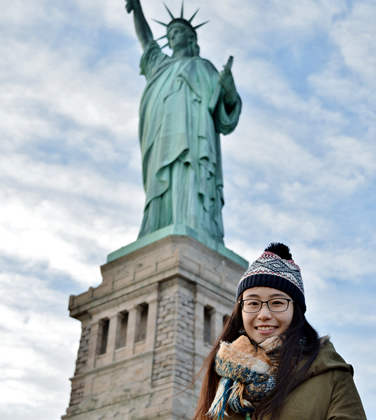
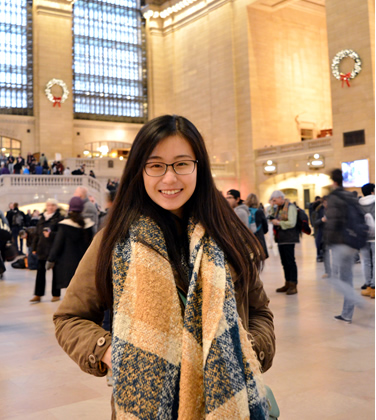
Ellaine CHENGFS2016-17, The Hong Kong Polytechnic University | to London
I wanted to update you and tell you how much I have grown, both personally and academically, through my journey at University of the Arts London (UAL). When I first received the offer for the Fung Scholarship, I was very excited because I will have the chance to live and study in London in a prestigious arts school. I was also nervous because I did not know what this journey would entail, in a city that I have never visited before, but I am very glad that I did. This journey was amazing and eye-opening, and I definitely changed both personally and academically.
I’ve grown personally, through meeting different people of different cultures. I got to live with people from different cultural and social backgrounds, and I learnt how to live with them and compromise. Not only that, but coming to an unknown city alone, it forced me to come out of my shell to become more independent. I am not afraid to do things alone anymore, and I feel like I have grown mature enough to be prepared for the ‘real world’. The culture in London, if I were to summarize it into one word, is that it is very colourful. Everything here is so quirky and interesting and not something I’ve encountered before, and I will definitely miss this type of environment when I go back to Hong Kong. Being in London made me realize how much I appreciated street art and vintage objects; Brick Lane and Shoreditch are my favourite places to go to whenever I feel under-pressured or uninspired. The people here are also very welcoming and nice, but that adds to the unique personality of London. Whilst living here, I also got a little homesick, and this made me appreciate the good things about my home; things that I wasn’t appreciating enough when I was there. When I go back, I will look at Hong Kong in a different light and I will be more inspired to explore more about what my home has to offer.
Academically, UAL is a very challenging university. They teach you to think for yourself and to express your own ideas, which is something I deeply appreciate. Prior to coming to London, I didn’t have a lot of experience with fashion marketing, as the first-year of my studies in Hong Kong are mostly building upon foundational knowledge for the industry. However, when I came to London, I was studying as a year 2, where most of my peers seem to already have knowledge to basic marketing principles. I was a little intimidated at first, but I learnt to work harder and to push myself and gain more knowledge.
Through my academic journey in London, I have found my passion again and I am excited to go back and learn more about the world of fashion business. When I go back to my home university, I hope to share my experiences and knowledge with my friends and peers.
Faith LAM Yan LingFS2017-18, City University of Hong Kong | to USA
In Spring of 2018 I went to University of Wisconsin-Madison, USA for a semester exchange program. Located in the Midwest, University of Wisconsin is one of the best and well-established public universities in the States with excellent business education, with 20 separate campuses in different major counties in the state.
It’s a once in a lifetime opportunity for me to study abroad, at a world class institution, so I took 6 business courses at my host university. The university supports students to broaden their horizons, so students have minimal restrictions over choice of courses. I took courses related to finance, marketing, risk management, international business and even actuarial science. At first it took me some time to adjust to the teaching style in the United States, which stressed on self-learning by encouraging students to prepare for class by finishing readings and raise questions in lectures. Having English as my second language, completing a lot of readings within a short period of time was a challenge as well. It also surprised me when I saw students in such a land of freedom have a high level of discipline, coming to class punctually, having their phones and laptops away and actively making notes. I do believe that Hong Kong students do need to work on their learning attitude when I get used to things going on in the States.
Apart from having an insightful learning experience at University of Wisconsin, I had joined some other activities at the University. I participated in a Salesperson skill workshop and learnt pitching and persuasion skills from industrial experts and I do think that persuasive skills are particularly useful in the future as these soft skills are transferrable and I can use these skills whenever I have a job interview or I have to pitch a potential client for a big deal at my company. In March, I also celebrated St. Patrick’s Day, a special Irish festival with other exchange students in front of the State Capitol and watched the parade.

Bucky Badger at St. Patrick’s Day Parade in mid March
Though the coursework at school was demanding, I also spent time travelling to some busiest American cities including Chicago, San Francisco, Los Angeles, New York and Washington. When I travel to different places, I also explore the unique culture and history there. For example, I got to know the long, tragic history of the slavery of Chinese migrants when I visit the Chinatown of San Francisco, while my trip in New York really allowed me to feel the pulse of the world’s busiest city.
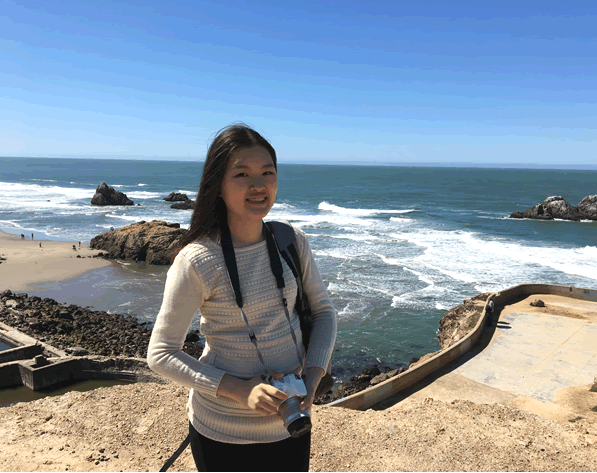
Land’s End, San Francisco
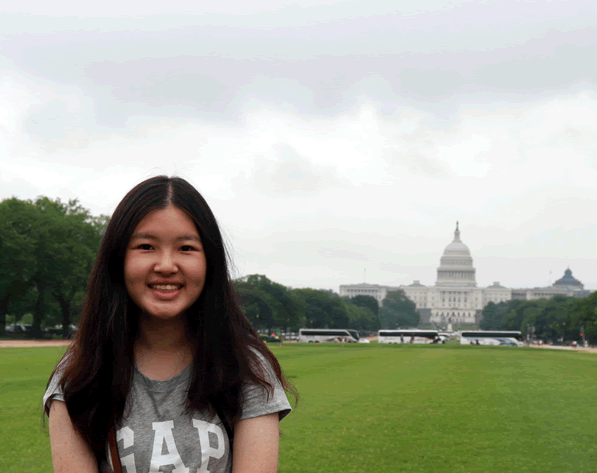
National Congress, Washington
This exchange program has changed me a lot, it is like the key that opens the door towards other parts the world for me. Firstly, I became more independent. In the past, even I had tried living in the school dorm in the past, I had never attempted to cook my own dishes. After exchanging, not only I learnt to prepare my own dinner, I learnt to manage my wealth by keeping a good record of my expenses.
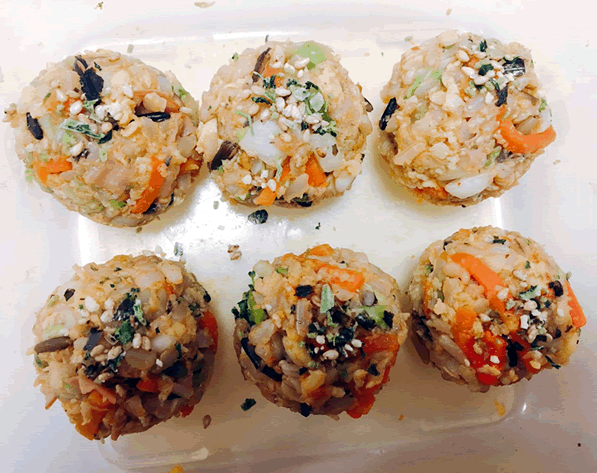
Handmade fried rice balls made by myself
Secondly, I had improved my spoken English proficiency. USA is really a good environment for me to practice my spoken English. Basically, I can practice wherever I go. I started by knocking at my neighbors’ doors and try to introduce myself to them, and ask them out for dinner. At first, I am afraid that they will tease me because of my Asian accent, but they are actually very nice and they are willing to correct me if I had made grammatical errors and even taught me to pick up some local slang. Now not only my spoken English is improved, I made more friends coming from other parts of the world.
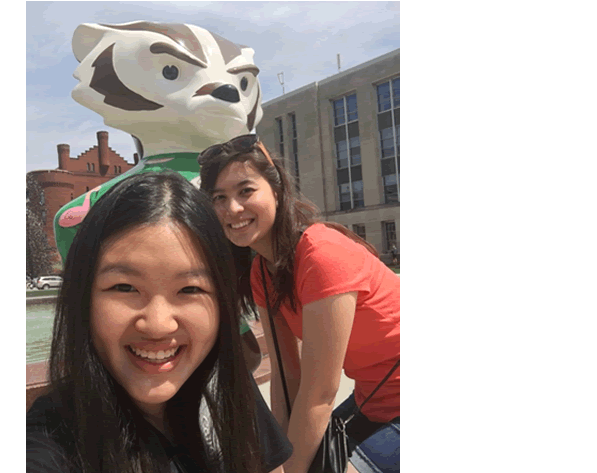 Me and my friend Audrey living next door
Me and my friend Audrey living next door
Thirdly, I feel more open to a diverse working environment. I used to feel frustrated when I have to collaborate with people from different background. After exchanging in the States, I realized that it is important for me to accept and respect cultural differences between team members. The level of acceptance of cultural diversity is definitely important to me as I always want to work for Multinational Companies where I might have to work with people from other parts of the world and sometimes might also have to work in a foreign country for international projects.
At last, I would like to once again thank Victor and William Fung Foundation for awarding the Fung Scholarship to me as a financial support in the States as well as a recognition of all the effort made to achieve academic excellence in Hong Kong. The scholarship helped me to realize my dream of studying abroad in one of the best institutions. I would also like to thank College of Business and Department of Management Sciences for supporting me all the way from nomination to welcoming me back to my studies at City University of Hong Kong.
LI Si YeungFS2014-15, City University of Hong Kong | to Norway
This is the third week since I have been back to Hong Kong. It is good to be home again, but also I am glad that I have gone through such an amazing 5-month exploration, in which I had wonderful experiences and learnt countless lessons.
Before going on exchange, I tried to set up goals in order to better prepare myself for a meaningful journey. But as always, I wanted to do so many things, from learning Norwegian, getting immersed in and learning from another teaching and learning style, to travelling around Europe. Concerning that I only had at most 5 months aboard, I know I had to narrow down my goals.
It had been a hard decision, but finally 3 goals were set. First, I would like to leave myself some time everyday, to relax and think. When I was in Hong Kong, I always wanted to fill up my time with various activities, from long-distance running to playing piano; from participating in volunteering work to organizing training camps for psychology freshmen. My life then was fruitful, but at the same time, my schedule were too packed that I did not have time to digest the things learnt in the activities. As a result, I sometimes had no idea what I was doing. I knew that was not going to work. Taking the chance of going on exchange, I decided to give myself a break, giving myself free time to retrieve the pace of life.
Therefore, when I was in Oslo, I allowed myself time doing nothing on purpose, just brainstorming, reading books, listening to music, wandering on the street, noting down the interesting things I found during the day, and writing dairy. I enjoyed these moments a lot. These moments were recharging, a feeling that I had never had in the past few years. My mind then became clear again and inspirations popped up from time to time; I was much happier and learning much faster.
Besides refreshing myself, as interested in the field of education, I would also like to learn from the teaching and learning style in Oslo. For the courses I took in the University of Oslo (UiO), the professors’ teaching styles were quite distinct from that in my home university, the City University of Hong Kong (CityU). In UiO, most of the courses I took did not have a textbook, but only relevant journal articles. In the lectures, teachers mainly summarized the weekly readings and encouraged discussions on related topics. So rather than passively receiving knowledge, the lectures provided a platform for students to exchange their ideas on the topics which helped students to understand the main ideas of the articles, as to facilitate students’ learning at home. For learning the basic ideas, it mostly depended on students themselves.
Comparing to the teaching style in Hong Kong, there were considerable differences. Firstly, most of the courses in CityU had textbooks as the main teaching materials, supplementing with journal articles. During the lectures, lecturers would illustrate the main ideas in the related topic and teach the basic concepts in the topic. Not as much interactions were in lectures in CityU as those in UiO. Secondly, as the lectures’ focus was on discussions among students, most lecturers in UiO expected students to read through the articles before lectures, so everyone can exchange things they had learnt from the articles with each others, in order to facilitate learning in both sides, both the one explaining the ideas and the one listening. While in CityU, as most of lectures focused on teaching course contents, though it would also be preferred for students to read through the book chapters before lectures, students usually went to lectures expecting to learn everything they need to know in the topic. These observations for sure could not be generalized to every student, but these somehow captured part of the phenomenon.
After learning in UiO, and discussing this issue with one of my floormate, a professor in architecture from Kenya, I thought preparing before class would greatly improve learning in class and understanding of the topic. But at the same time, textbook could be included and teachers could explain more on the basic concepts so it could raise students’ interest in the relevant topics, and a solid knowledge base could be built before moving on to studying the more advanced journal articles.
Concerning the learning atmosphere in UiO classes, it was quite a surprise. Before attending classes, I thought pupils in UiO would ask lots of questions in class. But what I experienced was that it was so quiet in class that I could clearly hear someone flipping their notebook in the huge lecture hall. Perhaps the Norwegian culture was one possible way to explain this phenomenon. According to one of my Norwegian friends, there is an idea called the Law of Jante, which was suggested by a Dano-Norwegian author Aksel Sandemose. It described how outstanding individual successes and achievements were criticized in the Scandinavian societies and group behaviors were much favored. It might be to certain degree extravagated, but still it might have illustrated certain characteristics common in Norwegians. People might be more reserved under these societies, while equality among people are much valued and emphasized.
Looking at a culture from the view of an outsider was always interesting, in a way that it often challenged my world view, and always reminded me to stay open-minded. When I first arrived at Oslo, I found that when I tried to look into people’s eyes, they were all avoiding eye contacts. Besides, during weekends and holidays, Norwegians love going to cabins and spend days in little wooden houses. These houses have neither electricity nor water supply. Living in one would be like living in the wild. Though many students from other countries found this hobby hard to understand, I very much appreciate the idea of going primitive. As nowadays people are surrounded by all kinds of up-to-date information and technologies, life seems meaningless if phones and Internet are taken away. Although spending holiday in such conditions may have gone to another extreme, the idea of living a simper life is inspiring.
For these cultural practices, different aspects in life might have contributed to its formation, including the living habits, socio-economical situation and historical reason. Concerning this, I had an unforgettable experience in Prague. When I travelled to Prague, I could hardly find smiles on people’s faces, even when they were talking to their friends. Also, I found them easily got angry. Later during a conversation with my hostel host, I mentioned about it and asked if it was common in Prague. My host said it was quite common, and maybe it was due to the historical reason. She said that in the past, people in the Czech Republic lived under monitoring, feeling like there was always someone watching them. That might have caused distrust among people. After that period, the Czech Republic has opened up to other parts of the world, where various people and cultures were rushing into the country. It might still take time for the people there to trust their fellow countrymen, so not to mention people from other places. Although I have read about the history of the Czech Republic before travelling, the feeling was never that intense when being there. This experience had encouraged me to travel more, for seeing and feeling the world.
This thought resonated with my final goal: Stepping out of my comfort zone and to be myself. During my exchange, I had met people from all around the world, some of them became my close friends, with whom I had wonderful moments and memories. A Barcelonan girl had become my good friend and now we still keep in touch every week; an amazing Norwegian women I met when coach-surfing in Stavanger had taught me that a simple life can also be wonderful, encouraged me to live my life in the way I love and had showed me how brave, independent, and powerful a women could be when she had a strong belief in mind; a Kenyan professor, an Colombian accessories designer and an American lady who made delicious cheesecakes had made me realized that when I am doing the thing I love, I will do it with all my passion. In this case, others will feel it, be influenced and moved by it. Other than these people, too many others were to be mentioned, who have inspired me in different ways. All these amazing men and women had taught me the most unforgettable and valuable lessons, motivating me to keep exploring the world. If I was not so brave and take a step forward to see the world, every single one of these encounters would never have happened.
Reviewing the goals that I set before going on exchange, I am glad that I had fulfilled most of them to a great extent. I had never dreamed that I could achieve any of these during my university studies, but Li & Fung Scholarships has given me the hope. With its support, I dare to dream for such a wonderful journey and had even realized it. The scholarship has allowed me to discuss psychology topics with experts and talents from different parts of the world in UiO, get immersed in a distinct culture, and had provide a platform for me to communicate with other Fung scholars from all around the world to continue my journey of exploring. I would like to express my deepest gratitude to my scholarship donor, Victor and William Fung Foundation Limited, for offering me the exchange scholarship and allowing me to dream.
Philemon CHANFS2014-15, City University of Hong Kong | to Singapore
“You seem to have lost a lot of weight! Was the studying environment overseas very stressful for you?” spoken by my Korean friend when we managed to catch up for a while on Facetime this late afternoon. It was more than a year since we last met each other face-to-face. He used to be the exchange student sharing the dormitory with me on campus. We were close so I assumed his reaction out of nothing but shocked to be a relying reference point of this. And true, he was one of the many who pointed out the mystery of me slimming down after my exchange program at the National University of Singapore (NUS), including my parents and relatives.
Applying for the Student Exchange Program (SEP) was never a pop-up thought out of a sudden. I have always hoped to have a taste of how it is like studying in a university where students enjoy engaging into academic discussions and are propelled to give the best out of learning by dreams and interests. When I finalized my university choices in my application, I consulted enough, including my professors and relatives, and considered thoroughly about the relevance of the courses that are offered by the hosting universities to my course of study, I eventually prioritized NUS over several equally tempting choices, including the University of British Columbia.
Since the NUS School of Economics and the NUS Business School are highly-renowned not only in Asia but also in the international academia, I was quite confident with the quality of the education provided. I believed that was one of the major reasons for my choice.
Exposing oneself to challenges and uncertainties, learning to cope with the unexpected environment independently, stepping out of our comfort zones and diving into others’ cultures are clichés that the exchange coordinators acknowledge from SEP participants. Undoubtedly, these are crucial elements constituting a note-worthy SEP experience. However, I wanted more. I wanted to be a signature difference from the crowd. I remembered myself speaking up in the interviews, saying, “I wanted to observe for myself the differences between Hong Kong and Singapore so as to bring back for my peers and the society, equipping us to better gear up for the upcoming competitions across the ocean and creating a healthy breeding platform for future policies and improvements as an ultimate benefits to Hong Kong”. Huge and heavy, but I believe I have accomplished part of it.
I adapted to the Singaporean way of living quite quickly as Asian countries do share similar values and rituals. A metropolitan city, small but rapidly evolving. It is more or less like where I came from. I spent most of my time making friends and creating strongly bonded friendships, in NUS during classes and extra-curricular activities, such as residence gatherings and the NUSChoir. Luckily, I met some friends in church which has further broadened my understanding of the country other than knowing those elites from university. From my observation in class and interactions with friends, I have discovered that most of the Singaporean youngsters truly enjoy learning about what they are studying. They try their very best to master their knowledge and understand most of it because there is a huge part of them enjoy being nurtured with the philosophies of their field of study. You can always tell the same when their eyes start blinking, tones start rising and when they carry a smile discussing their academic learning even though we are all stressed about exams and the “bell curve” grading mechanism. However, it is a pity to say that I seldom see my Hong Kong peers’ shining eyes and blinking eyelids when it comes to academic discussions. They are there only when we come across with topics in relation to salary, prosperity and consumerism. We are too comfortable getting things done under given constraints and expectations. But who we are? We do not have to live upon others’ expectations, right? I definitely perceive it is time that our younger generations had a refreshed mindset about university education, starting to love what they learn, if our city is aiming at greater innovations, lifestyle and academic contributions like what has happened to the stronger powers in the globe.
I appreciate the opportunity to learn from my professors in NUS, they are intelligent and nurturing. I am most inspired and entertained by the guest session that they scheduled in class. Their dense connection in the fields provided me room for career planning, it was brilliant hearing stories from elites who are CEOs and Managing Directors of big brands, for example, DBS, FujiXerox and Rodamas Group etc. I was deeply impressed by the speaker from Marco Polo Marine. He walked into the seminar room at 8 o’clock in the morning with a cheerfully amiable smile, apologizing for his poorly dressed attire with a polo-shirt in grey, an ordinary sneaker and an authentic blue jeans, with a cup of coffee in his right hand. We were slightly surprised as we thought we were to having a sophisticated middle-aged elite as our guest lecturer that day. His young face and his presentable character caught most of our attention and faded our yawns in that energetically sunny morning. In the speech he gave, he introduced to us his daily work and problems that he faced in the years working as a CEO since his father’s retirement. I couldn’t imagine that he still reserves time to visit docks to check out the ships, to ensure the company’s strategies are well performed in the field and to motivate his employees. That explained his apology for his poor attire that day. As I always perceived CEOs as the ultimate power in a company who meets business partners for opportunities frequently and comes out with strategic planning in a large room on a wooden desk which was different from what I learnt from him. There is one thing I am sure about after attending his lecture – there is no perfect formula for a successful CEO, it’s truly your vision and the working atmosphere you created that empowers your company to be special!
Moreover, I liked how the professor delivered the “Strategic Management” class other than providing us precious lectures meeting the guest lecturers. She prepared us with case study materials before class and required us to finish up the readings beforehand, including confidential company information which were approved by the company under discussion. The materials reported real difficulties which were faced by the companies, she would normally lead us through intense discussion having us to provide points of views, analysis and possible solutions to rectify the problems. After that, the guest speakers would take over the discussion and share how and what they did to alleviate the problems in the past as well as going into the pros and cons of our suggestions. I fancy the experience as it allowed us direct conversation with the CEOs and to have our thoughts challenged as potential analysts helping the companies. I have developed a greater exposure to help building a more forward-minded character so that I can be an early bird catching opportunities when they arrive!
Apart from knowing local friends and learning in class, there were more back in my accommodation. I was given a 4-bedroom suite with three other “flatmates”, a Jewish-American, a Chinese-American and finally a Korean-Dutch. We had a lot to compromise and to learn from one another especially we differ in various, ranging from hobbies, personal hygiene (especially there was one who liked drying his underwear on our sofa in our living room) and political standpoints etc. Our differences in living habits was the first that we had to overcome. They enjoy hosting guests at our place late at night, drinking and chatting happily. It’s their way to socialize with people after a long day in class. However, I sometimes found it irritating as I had a few 8am and 10am classes on weekdays. They were understanding but the most challenging was me trying to hold my temper asking them to lower their voices. Since I was annoyed easily when loud laughs pull me out of my dream. I tried not to be rude as I like befriending with them. So I learned to remind them with ease when they became too loud and say “goodnight” before I sleep, finger-crossing that the “goodnight” shall act as a tag line for them to lower their voices. That was how things went smooth under appropriate ways to compromise.
Furthermore, I recognized there was a time the Jewish-American and I engaged into a discussion about the divergences between the Chinese and American political system. We pin-pointed a lot on liberty, communism and even on the values of family and friendships coming after the system. We had opposing perspectives about the differences, one believed the states was the model to follow and the other advocated that the world should leave room for the Chinese to develop their own system especially when the western system has not shown perfection yet. We tried hard to maintain our temper yet speak with confidence without finger-pointing each other. We didn’t have a conclusion at the end but we slept well that night after having our perspectives broadened as we made it respecting other values and coping the differences well to love one another in humanity.
Last but not least, this has always been a remark of my stay in Singapore whenever people asked about my experience. The time, typically the second half of the semester, spent with the NUSChoir was stunningly awesome. I am glad that I went for audition in the beginning of the semester even though I was the only one going among all those I knew in the first few weeks after arrival. I reckoned I was attracted by their welcoming poster and persisted to keep singing as what I projected myself doing before leaving Hong Kong. The choir does choral pieces of various genres and languages which the experience have strengthened my passion doing choral pieces and has widened my understanding in choral singing. I acquired a lot from it, such as, ways to conduct a choir, new vocal warm-up exercises, and vocal projection techniques as I was assigned into a vocal class taught by experienced vocal teachers and more. I have expanded my interest appreciating different contemporary choral pieces and their composers, as the conductor of the NUSChoir knows many of them and tells stories between themselves when he conducts. Eventually, a mixture of confidence and folly was evolved and motivated me to step out from the crowd becoming the “Section Leader” who conducts sectional rehearsal with the choir members after returning from Singapore. And that has marked myself a significant milestone while singing with friends who share the same ideals.
Finally, I hope to extend my gratitude to Victor & William Fung Foundation for acknowledging me as one of their scholarships recipients. It not only has provided me with easier budget in fees associated to air-ticket, accommodation and miscellaneous expenses and more. It helped me to afford a place in the most popular and expensive accommodation on campus with easy access to trendy facilities including the infinity pool, gym room and cozy study lounges and that I didn’t have to seek for off-campus accommodations. Thus it was a blessing to me to stay close and spend even more time with a lot of exchange students and local friends who stayed in UTown together with me, learning from their stories and reflecting on my deficiencies. Also, to a greater extend, the scholarships has become a recognition to my past that I proudly treasure and has always driven me to stay positive and be true to my values whenever I am upset for the world not recognizing my talents and abilities. I wish the future recipients of the scholarships would further confirm that the foundation’s generosity be favour to the younger generations whose overseas exposures have been seen important to developing a better society!
 NUS organizes plenty of activities before the start and thorough the semester. As the closing activity of the NUS Alumni Day (photo on the left), friends and relatives of NUS came together watching a moving at night on “UTown Green”, spending moments of fantasy at “home”. HERE (photo on the right), the annual showcase of the NUS Centre for the Arts (CFA) which in-charges of all arts groups including the Wind Symphony and the NUSChoir. It’s where talents, dreams and companionships meet.
NUS organizes plenty of activities before the start and thorough the semester. As the closing activity of the NUS Alumni Day (photo on the left), friends and relatives of NUS came together watching a moving at night on “UTown Green”, spending moments of fantasy at “home”. HERE (photo on the right), the annual showcase of the NUS Centre for the Arts (CFA) which in-charges of all arts groups including the Wind Symphony and the NUSChoir. It’s where talents, dreams and companionships meet.
Queenie LEE Kwan LingFS2010-11, The Hong Kong Polytechnic University | to Sweden
Before I joined the exchange program, Sweden was unfamiliar to me. Sweden is not a popular place where people always go travelling. Therefore, I would like to go there and know more about the country.
Although majority of the students are Swedish, there are many international students in my host school. It is a good chance for me to meet people from different countries with different culture.
During the exchange in Sweden, I had a car accident. I stayed in the hospital for a night. After that, I needed to help the police to investigate the accident and went to the hospital to handle the insurance and doctor’s reference letter. At the same time, I had to prepare for the exam. It was a hard time for me. I was not feeling well but I still needed to handle all the stuff by myself. This experience made me stronger and maturer.
Apart from attending lessons, I made use of my free time to travel around. I have been to 14 countries during the exchange period. It was a great experience and I have greatly broaden my horizon.
I find the exchange experience helps me to become more independent and mature. I faced all the challenges alone and make a lot of desicions. Besides, by making friends with other students, my communication skills have been improved.
Sam KOK Man ChunFS2012-13, The Chinese University of Hong Kong | to Singapore
It is with gratitude that I write this note of thank you to Victor and William Fung Foundation. My name is KOK Man Chun Sam. I am proud to represent Chung Chi College to go to National University of Singapore for academic exchange in the last semester (2012-2013 Semester 1). I am a second year student in Social Science at The Chinese University of Hong Kong.
Although I have been there for one semester, the experience is truly rewarding. I have been studying Urban planning and Environmental Issues in Cities, which are my interest at university.
Studying one country’s urban planning system has important implications to what it is for Hong Kong. For example, the policies for development control, different incentives program to encourage environmental friendly design etc. Undoubtedly, the stimulus from Singapore’s planning system strengthens my desire to be an urban planner in Hong Kong. I hope that one day the same can be applied to Hong Kong to promote better environmental awareness.
I sincerely hope to take this chance to thank Victor and William Fung Foundation for granting me to go on an exchange trip to Singapore. Thanks to the generous sponsorship, I am able to explore a country which is always considered to be a competitor to Hong Kong. I am able to look deeply at what the country is and make a few comparisons with Hong Kong. Your generosity is appreciated and accepted with extreme honor.
A German exchange friend I have met in the school campus in the National University of Singapore. I did not expect to be friends with Europeans before BUT I made it! And he actually came to Hong Kong to meet me! The photo is showing that we were having meals in the famous Dim Sum shop ‘Tim Ho Wan’ in Mong Kok.
Meeting friends must be one of the most rewarding experience in the exchange trips. We were trying ‘prawn fishing’ with friends around the world, like from Taiwan, France, and Singapore as well!
Sarah CHEUNG Wing YinFS2010-11, The Hong Kong Institute of Education | to Australia
It is obvious that the life style of Australia is much better than that of Hong Kong. It was definitely a good chance for me to enjoy the school life during my exchange to Australia. People in Hong Kong do not know how to enjoy the life and how to relax. I learnt from my exchange about how to live a life which is less stressful and depressed.
During the exchange, I had more chance to communicate with different people. Everything was new to me, so I joined more activities, asked to know more, and learnt to enjoy my life. All these helped me to develop myself to be an all-rounded professional teacher, getting well-prepared to take any challenge in my future career.
In Australia, I needed to arrange everything by myself. It was a good experience for me. In the future, I will be a teacher and need to take care of hundreds of students. I need to be responsible and know how to make a wise decision. It is impossible for me to ask for suggestions from others all the time.
I believed that studying overseas definitely helped me to expose myself to a multi-cultural atmosphere. For instance, exchange students have the opportunities to explore different cultures which widen their horizons. Being an exchange student, I was more active by interacting with others and participating in different student activities. It was absolutely a good chance for me to get along with students who have different cultural practices. I think this is an excellent practice for me as teachers should be flexible as students always have different requests. Some people may have the chance to travel, but they cannot experience everything as the time is rather short.
Last but not the least, my host institute is really a beautiful school. Students can enjoy their university life. The staff of international office are helpful. If students have any problems, they can ask them for help. In addition, its housing is comprehensive. Students can choose their own quarters. I sincerely recommend my fellows to choose Flinders University!
TSE Tak Hei LeoFS2015-16, The Chinese University of Hong Kong | to Netherlands
During my exchange for the fall semester 2015 at Erasmus University Rotterdam, I took four courses offered by International Bachelor Communication and Media (IBCoM), namely Media and Politics, Corporate Communication, Cultural Influences on Communication and International Journalism.
All the courses of IBCoM adopt the problem-based learning system, which aims at training students to analyse and solve problems independently through emphasis on self-study. Before each lesson, we have to read around 20 pages of readings to understand the topics and case study of that week so as to prepare ourselves well for discussions during the class. During the lessons, interaction in class is highly recommended by lecturers. The lecturers encouraged us to think about the knowledge presented to us and to be critical of the course materials. I used to be a passive learner who accepts what is taught by the lecturers without thinking through the course materials deeply. The problem-based learning system has trained up my critical thinking skills and analytical skills. I will make good use of these skills in the rest of my study at CUHK and at work after graduation.
My favourite course in this semester is Media and Politics. The course mainly examines the close relationship between media and politics. One of the most important theories in the course is the Politics-Media-Politics Cycle (PMP Cycle) which states that when there are political changes in the society, the media will report those changes. But when media report these changes, the media will cause changes in the political environment too. Example of this cycle includes the Watergate Scandal in 1970s which led to the stepping down of President Richard Nixon at last. This shows the importance of journalists and media in monitoring the government and politicians in the society. This course has strengthened my goal of becoming a successful journalist in the future.
Thanks to the Victor and William Fung Foundation. Without this scholarship, I would not be able to experience the Dutch problem-based learning teaching method and train up my critical thinking skills. This scholarship enables me to broaden my knowledge and explore future career goal. I will make good use of what I have learnt in this exchange programme to serve the Fung Scholars community and Hong Kong society after graduation.


Wendy LEE Mun WaiFS2010-11, The Hong Kong Polytechnic University | to UK
I chose to study at Loughborough University as an exchange student because of my professors’ recommendations.
I enjoyed my time at the host institute, Loughborough University, very much. Located at a quiet and small town, Loughborough University had provided me with an excellent learning environment. Without much entertainment and social activities inside the university campus as well as the town itself, the peaceful environment had enabled me to focus on my studies.
Since Loughborough University has the largest university campus among the universities in Europe, it was quite difficult for me to find the respective lecture theatres of each lecture as well as the way back to my hall during the first two weeks of my stay in England. Therefore, my recommendation is that a fellow Fung Scholar who intends to have his exchange at Loughborough, he should bring along with him a ‘campus map’ whenever he goes out during the first few weeks of the exchange!
One significant difference in teaching culture which I have observed is that, unlike PolyU which stresses the importance of the application of theories to real life, my host institute focuses on theory teaching and memorization of most of the information in the lecture notes. Such contrasting difference in learning culture made me found it quite difficult to adapt at the beginning. Another major challenge which I have encountered was that the study leave prior to the examinations was far too short in comparison to that of PolyU which has two weeks.
In order to enhance our working relationship as a team, one of the lecturers had arranged a four-day-long training camp for us. The camp not only reinforced my communication and organization skills, but also provided me with a valuable chance in mixing and getting along with the local students. By participating in the group activities, I have made friends with all of my teammates and also gained a much better understanding about the local culture as well as the education system of England and the host institution.
I also managed to pay a visit to the Parish Church on my own which is one of the most famous tourist spots of Loughborough. Built in the 13th Century, it has been refurbished regularly during the past centuries. The church was opened on Friday and Saturday mornings only. At the time when I arrived at the Church, a secondary school teacher has arranged a tour in the church for her students led by a preacher. I was grateful for being invited to join the tour which in turn enabled me to explore the ancient style of architecture in England.
I have not only gained a better understanding about the education system and learning culture of England, but I have also made friends with people from different countries including the locals as well as exchange students from places around the world (e.g. Singapore, Turkey, Australia, etc.). In particular, I have myriad chances to chat with the students from Singapore since we used to have our meals in the same dining hall. I learned that males in Singapore are required to serve in the army for three years after finishing their high school (i.e. prior to their commencement of tertiary education). Also, one of my friends from Australia told me that it is a common phenomenon that Australian students tend to study Bachelor degrees without honours rather than those with honours. Occasionally, I met an exchange student from the Shandong province who had given me some insights in preparing for my IELTs examinations later on.
After my stay in England, I have become much more independent, capable of cooking for myself in weekends and hand-washing my clothes. I managed to practice and improve my spoken English during discussions in group projects and grasped chances of getting along with Mainland students by chatting with them in the dining hall or in the school buses which had in turn improved my Mandarin.
Finally, I would like to take this opportunity to express my grateful thanks to Victor and William Fung Foundation for its generous donation of the scholarship and also PolyU for providing me with the chance to participate in the exchange programme.
Committee
 Casey HO Cheng Kiu
Casey HO Cheng Kiu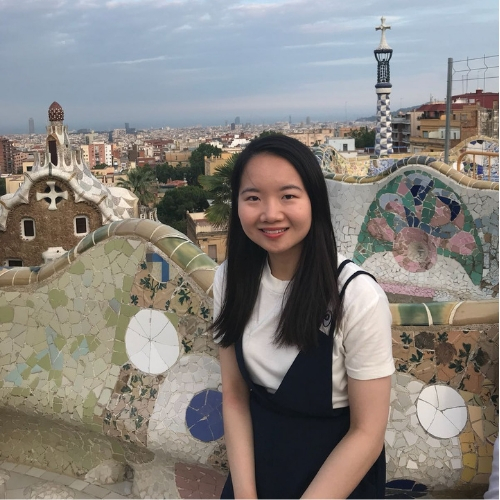 Chloe CHUNG Wing Yee
Chloe CHUNG Wing Yee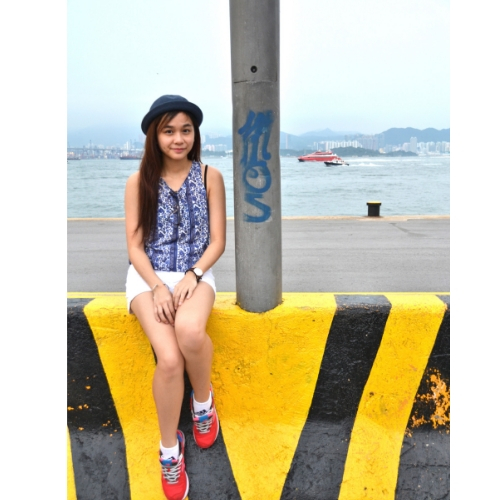 Connie CHAN Yi Ting
Connie CHAN Yi Ting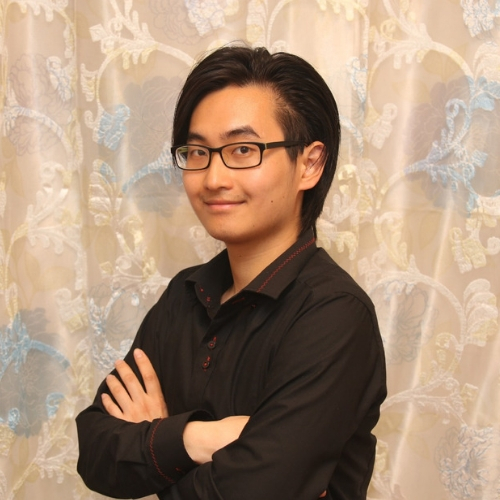 Herman TSUI Chun Lam
Herman TSUI Chun Lam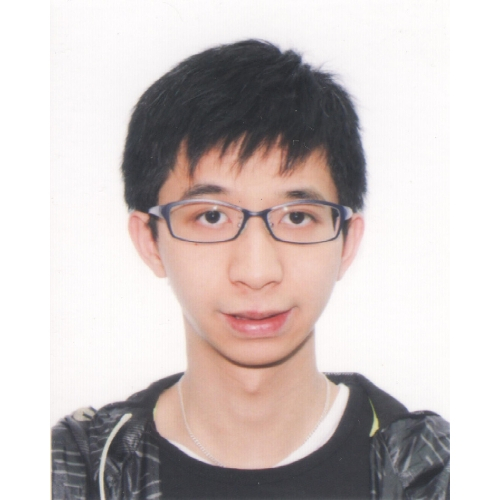 Jeffrey YAN Chun Yu
Jeffrey YAN Chun Yu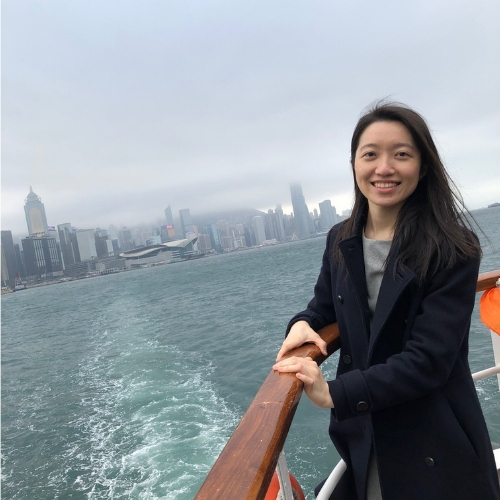 Jo NG Pui Sin
Jo NG Pui Sin John POON Tsz Fung
John POON Tsz Fung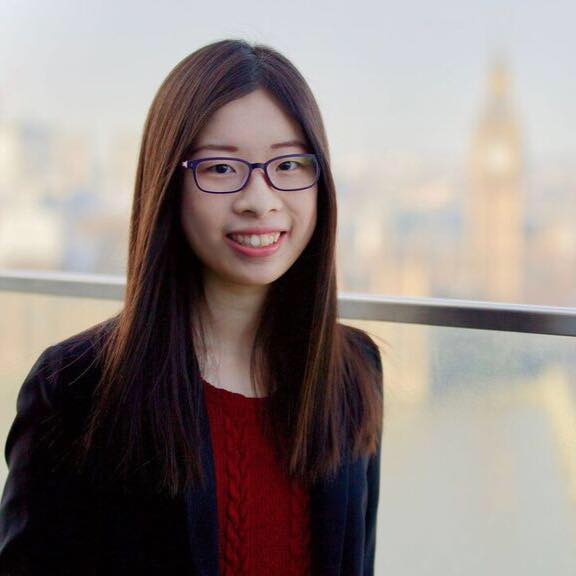 Joscelin YEUNG Chun Sin
Joscelin YEUNG Chun Sin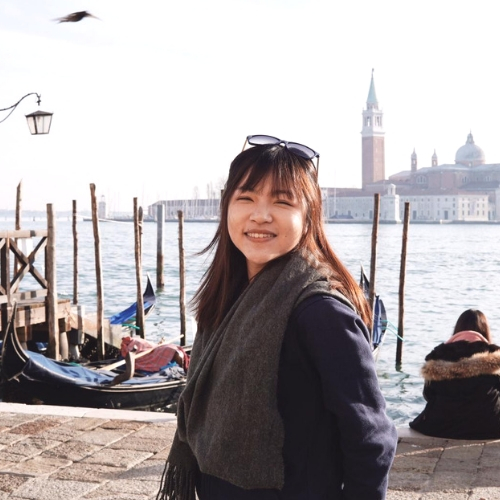 Karen LEE Ka Lam
Karen LEE Ka Lam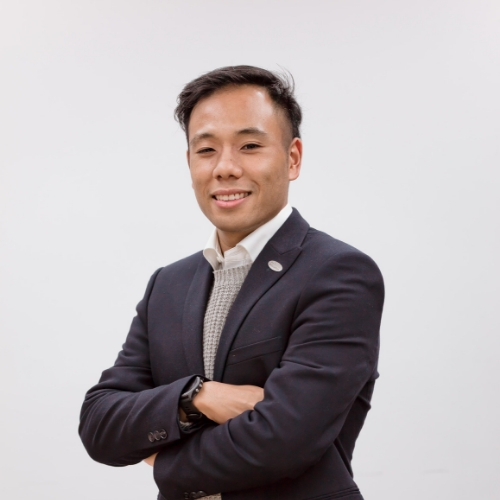 Kazaf LEE Chun Kin
Kazaf LEE Chun Kin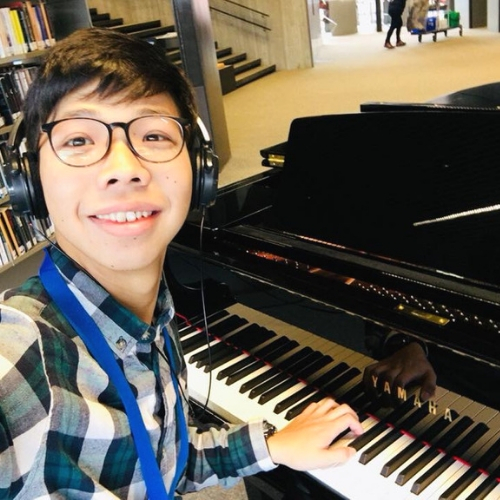 Ken FUNG Chun Kit
Ken FUNG Chun Kit Kevin LO Ching Kam
Kevin LO Ching Kam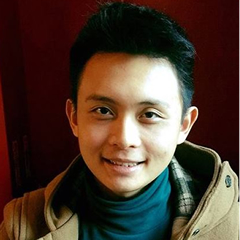 Leo LEUNG Sze Wai
Leo LEUNG Sze Wai Michelle CHAN Tsz Wai
Michelle CHAN Tsz Wai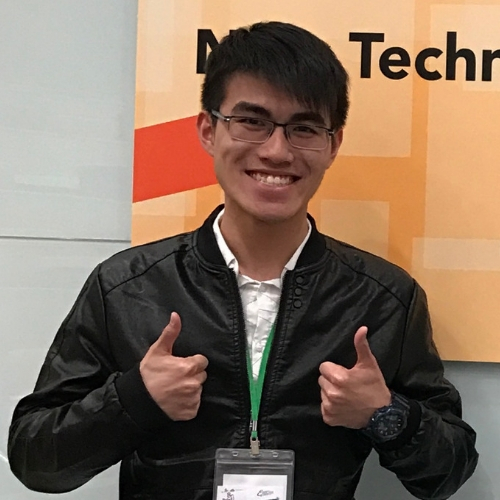 Ryan WONG
Ryan WONG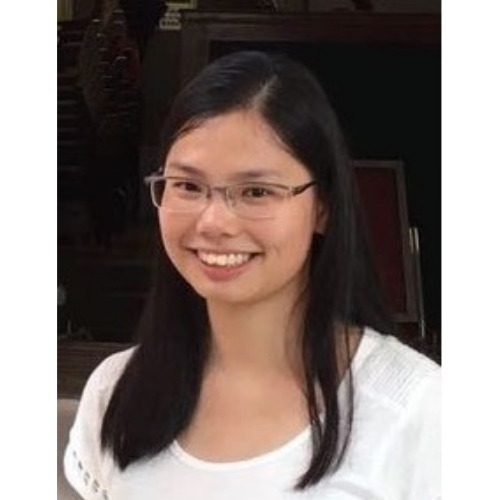 Serene HO Sin Hang
Serene HO Sin Hang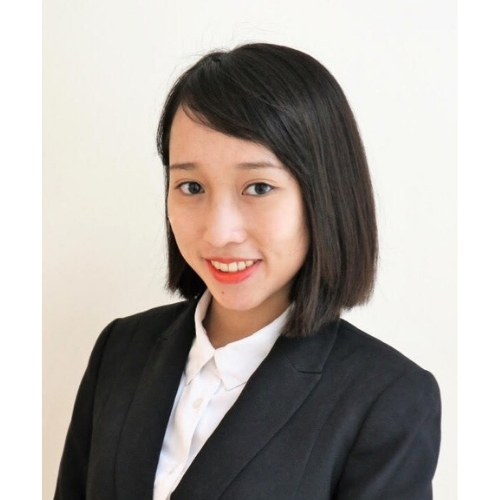 Steffany CHENG Tsz Wa
Steffany CHENG Tsz Wa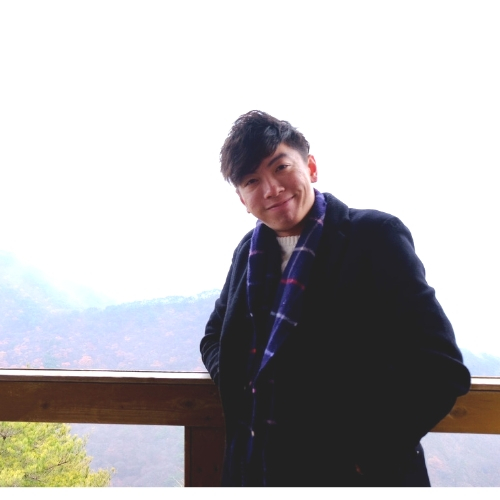 Steven YIU Cheuk Fung
Steven YIU Cheuk Fung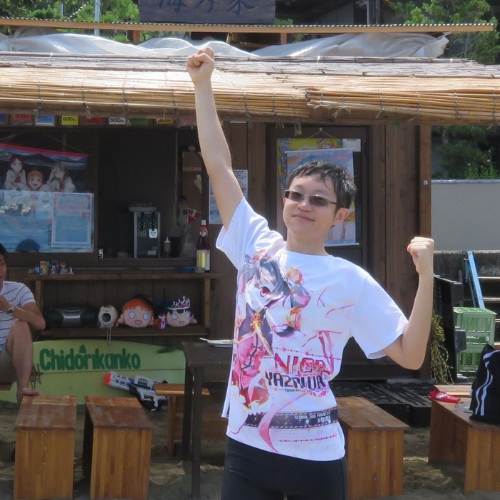 Toby PANG Lap Tin
Toby PANG Lap Tin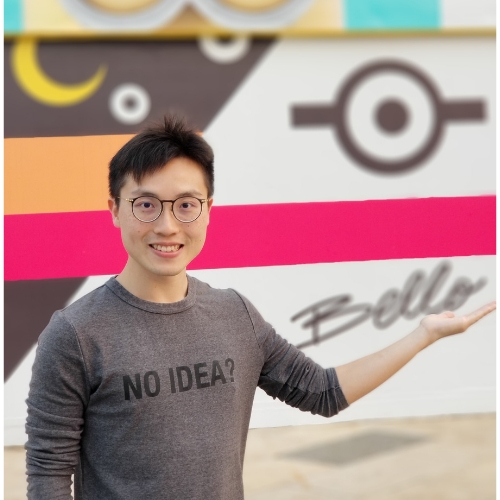 Tyson SZETO Chung Tai
Tyson SZETO Chung Tai Vanessa MOK Wing Gi
Vanessa MOK Wing Gi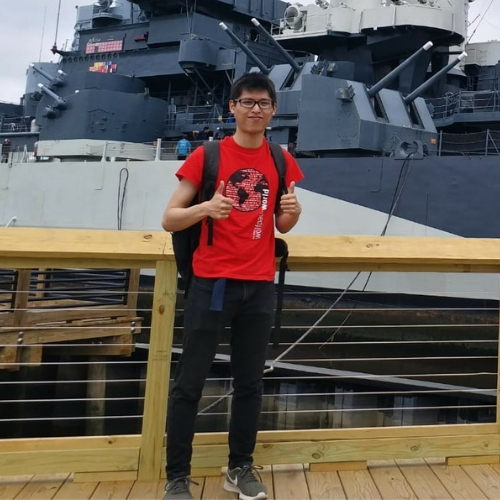 Winson CHENG Kan Yau
Winson CHENG Kan Yau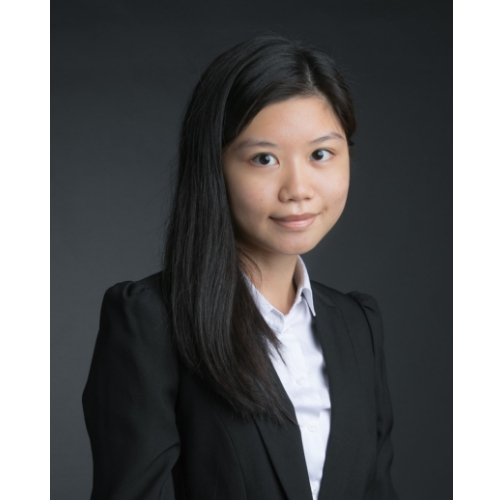 Yolanda MA Cheuk Yiu
Yolanda MA Cheuk YiuCasey HO Cheng Kiu
Awarded the Fung Scholarship in 2016. Exchange student at the University of Warwick, UK in 2016-17. Currently studying Engineering at The Hong Kong University of Science and Technology, specializing in Computer Science and Aeronautical Engineering. He had served in various committees at HKUST as student representative.
Chloe CHUNG Wing Yee
Awarded the Fung Scholarship in 2017. Exchange student at the Vrije Universiteit Amsterdam in 2017-18. She is pursuing a bachelor’s degree, with a major in business information system at the Hong Kong Baptist University. She loves traveling and attending conferences to learn new cultures, make new friends and step out of her comfort zone.
Connie CHAN Yi Ting
Awarded the Fung Scholarship and exchanged at Technical University of Denmark in 2018. Currently a final year student at City University of Hong Kong, studying Engineering Management. She loves to take new challenges and is passionate about sports and music.
Herman TSUI Chun Lam
Awarded the Fung Scholarship in 2018 to go exchange at Georgia Institute of Technology in the USA studying Mechanical Engineering. Herman is currently studying Building Services Engineering at The Hong Kong Polytechnic University and expected to graduate in 2020. He loves photography and sometimes works as a volunteer photographer at some events. Besides photography, he is learning digital painting by CSP (Clip Studio Paint). In the coming future, his goal is to reach his full potential.
Jeffrey YAN Chun Yu
Awarded the Fung Scholarship and went on exchange to Singapore Management University in 2017. Jeffrey is a final year student at The Hong Kong Polytechnic University, major in Accounting and minor in Finance. He loves singing, travelling and food. He was a committee member in the Catholic Student Society, Hong Kong Polytechnic University Students’ Union (HKPUSU).
Jo NG Pui Sin
Awarded the Fung Scholarship in 2013 and went on exchange at Cardiff University, the UK. Graduate of The Chinese University of Hong Kong BBA with experience in human resources role in multiple industries, now specialising in Compensation and Benefit area; interested in classical music, hiking and watching movies
John POON Tsz Fung
Awarded the Fung Scholarship in 2016. John went on exchange in City, University of London in the Fall Semester, 2016. He holds Bachelor of Social Sciences in Communication – Chinese Journalism (Broadcast Stream) with double minors in English Language and Literature, and Business from Hong Kong Baptist University. He is currently working as a business policy professional since 2017.
Joscelin YEUNG Chun Sin
Has been a Fung Scholar since 2014 and had her semester exchange at the University of Kent, the United Kingdom. She holds a Bachelor’s degree in Government and International Studies from Hong Kong Baptist University and a Master’s degree in Public Management and Governance from London School of Economics. She is now working in training and development in a local property developer. She is passionate about public speaking and is currently the Vice President of Education of Toastmasters Club. She is also committed to advocating for gender equality and enjoys doing yoga in her free time.
Karen LEE Ka Lam
Awarded the Fung Scholarship and went on exchange to Sweden in 2016. Karen graduated with a bachelor’s degree in social sciences from Lingnan University. Having interest in public policy, she currently works at a local think tank.
Kazaf LEE Chun Kin
Awarded the Fung Scholarship in 2013 for his exchange at University College Maastricht, the Netherlands. Holding a bachelor’s degree in Business Administration from The Chinese University of Hong Kong, Kazaf is currently a slashie, a volunteer at church, a part-time trainer and a part-time marketer. Before that, he was a marketer in a leading telecommunications service provider specialising in K-12 sector. He is also an active trail runner, a Super Oxfam Trailwalker and a Google Certified Trainer.
Ken FUNG Chun Kit
As an English language education major, he went to Sheffield, England, for an exchange semester in 2016/17 with the Fung Scholarship. He aspires to be an English teacher. He is also a lover of volunteering, hiking, swimming and traveling.
Kevin LO Ching Kam
President of Fung Scholars Hong Kong Chapter. With comprehensive work experience in several investment banks and financial institutions. Currently specialised in finance and risk management. He is also the Young Leader of AIA Foundation Young Leaders Development Programme.
Leo LEUNG Sze Wai
Graduated in 2017 with a BBA (Accounting and Finance). Awarded the Fung Scholarship in 2015 and went on exchange in 2016 at University of Strathclyde, U.K., where he took Quantitative Finance. He is an energetic person who likes scuba diving and ocean exploration. He is also an active volunteer at various organisations, promoting financial literacy. Currently working as a forensic consultant at one of the big 4 accounting firms.
Michelle CHAN Tsz Wai
Awarded the Fung Scholarship in 2014 and completed her one-year exchange at the University of Bristol in 2014-15. Michelle is a graduate of the University of Hong Kong and holds a Bachelor of the Laws Degree (LLB) and the Postgraduate Certificate in Laws. She loves travelling because she believes travel gives us new eyes to see the world. You can also spot her at the badminton court and occasionally baseball field.
Ryan WONG
Ryan was awarded the Fung Scholarship in 2016 and went to Newcastle University in the UK for exchange. He is currently an MPhil student majoring in Applied English Linguistics at the Chinese University of Hong Kong. He is an energetic person and has interests in different disciplines, including but not limited to linguistics, psychology, business and sports. He is also an athlete in sprint and karate.
Serene HO Sin Hang
Awarded the Fung Scholarship in 2016 for her exchange study at Lund University, Sweden. Serene graduated from the University of Hong Kong in 2017 with a major in Environmental Science. She is now an environmental consultant at a multinational engineering consulting firm. She is interested in sustainability issues and enjoys volunteering and travelling.
Steffany CHENG Tsz Wa
Awarded the Fung Scholarship in 2017. Currently studying Bachelor of Business Administration (Accounting and Finance) at the University Hong Kong. With accounting and finance academic background and working experiences in investment firms and banks.
Steven YIU Cheuk Fung
Steven graduated with a BBA (Hons) in Applied Economics and Marketing from Hong Kong Baptist University, and was awarded Fung Scholarship in 2015-16 during his academic exchange at Management Center Innsbruck, Austria for one semester. He is now working in the public relations field with expertise on the luxury retail sector. Steven also devotes his leisure time to voluntary service and running.
Toby PANG Lap Tin
Toby graduated in 2013 with a Bachelor of Education from The Education University of Hong Kong. He received the Fung Scholarship in 2010 and went to Oslo University College in Norway for exchange. He is an enthusiastic cyclist and anime lover. Despite having a teacher degree, he is now working as a printing engineer.
Tyson SZETO Chung Tai
Tyson was awarded Fung Scholarship in 2010 for an exchange in the University of Exeter in the UK. He holds a bachelor degree of BBA (Accounting and Finance) from the University of Hong Kong, and is currently an Executive Officer in the Government. Tyson is committed to social service and is now the President of the Leo Club of Hong Kong West. He is also interested in rehabilitation science and health science.
Vanessa MOK Wing Gi
Awarded the Fung Scholarship in 2009. Vanessa was an exchange student in Universita Commerciale L. Bocconi of Milan, Italy in 2010. She holds bachelor degree in Professional Accountancy from The Chinese University of Hong Kong. She is an Ex-auditor in PwC financial services assurance team, mainly focused on audit service for insurance and asset management clients. She is currently working in multinational Italian-based insurance group. She is a member of Hong Kong Institute of Certified Public Accountants.
Winson CHENG Kan Yau
Awarded the Fung Scholarship in 2017. A year 4 student of electrical engineering from Hong Kong Polytechnic University. Winson went on exchange at North Carolina State University in the United States in Spring 2018. Winson likes running and doing different kinds of sports. He also devotes his leisure time to student initiative volunteer work in Hong Kong and some overseas countries.
Yolanda MA Cheuk Yiu
Awarded the Fung Scholarship in 2018 to pursue an academic exchange at the Desautels Faculty of Management of McGill University in 2019. Yolanda is a penultimate year student at City University of Hong Kong majoring in Management with a Human Resources Management stream.

